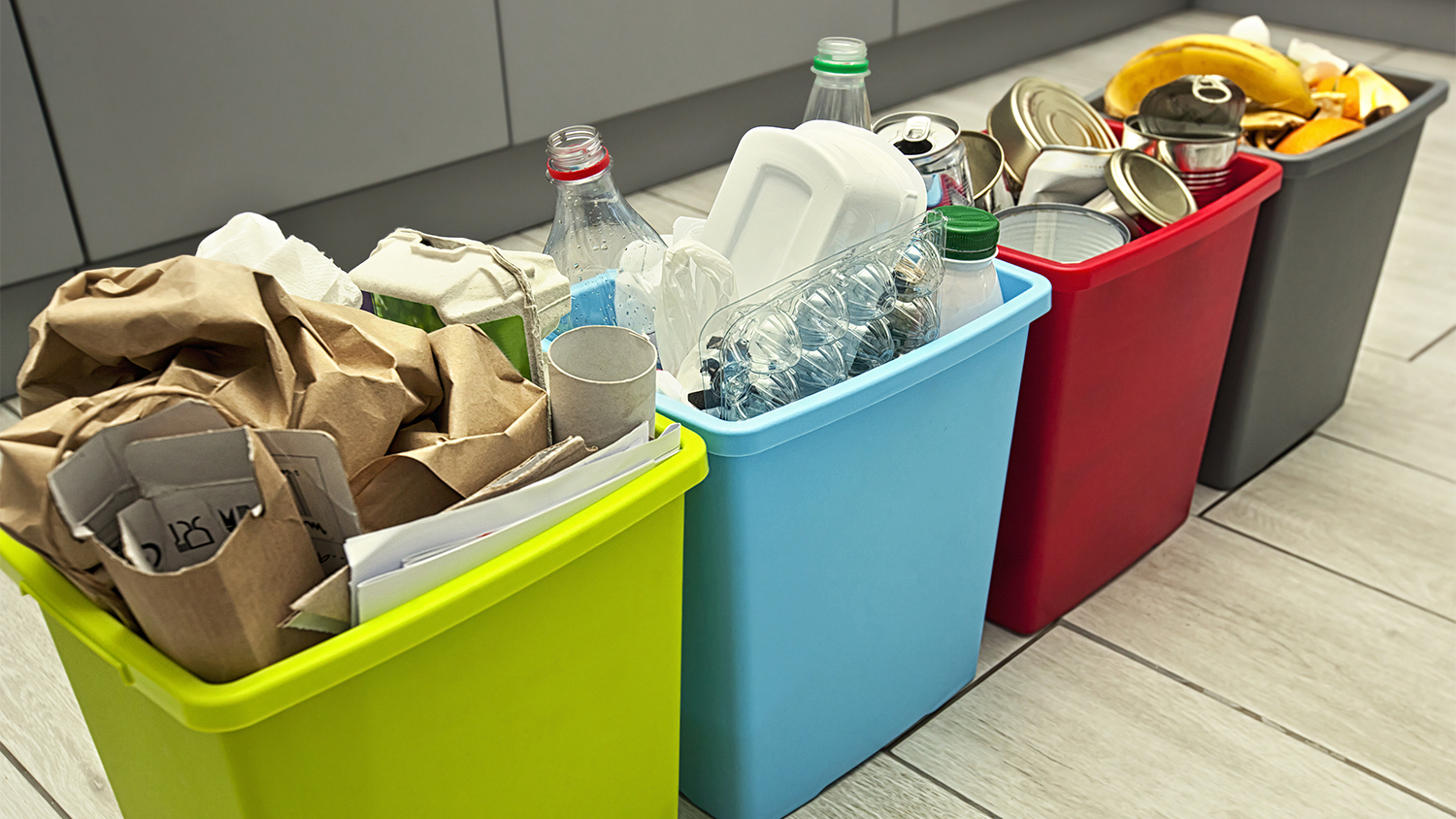10 Tips for What Not to Compost
You know the compost dos, but do you know these compost don’ts?
Whether you DIYed your compost bin or invested in the works, turning waste that would otherwise end up in the garbage bins into rich compost is satisfying. Composting allows you to turn leftovers into nutrient-rich soil fertilizer, but it's not a catchall form of disposal; if you put the wrong items inside your compost bin, you'll wind up attracting unwanted pests and potentially hurting your plants!
Become a master composter by keeping these ten items out of your compost bin.
1. Dairy
Not only will milk, cream, yogurt, and other dairy items smell pretty rank once they start to decompose, they'll attract animals, too! The U.S. Department of Agriculture encourages homeowners not to feed wildlife, as human food can harm animals that eat specialized diets.
Feeding wild animals, even if by accident through your compost pile, can malnourish or sicken animals, increase disease transmission from animals to people, and lead to aggression in animals that have become brave enough to hang out around your house in search for tasty scraps.
2. Meat and Fish
Whether it's chicken, fish, or beef, meat will smell like a treat to pests and animals, also encouraging the same problems as dairy in the compost bin. Not to mention, composting meat can lead to pathogens like Salmonella or E. coli in your compost, according to Michigan State University Extension, which can spread to your garden beds by accident. All this to say, these pathogens are the last thing you want on your garden-fresh produce.
3. Baked Goods
We all know that baked goods are extra enticing, and that is the very reason why adding them to your compost pile might not be the best idea. Pasta, cake, breads, and pretty much anything else that you bake are all pest magnets.
4. Oils
Disposing of cooking oils is a tricky business. On the one hand, you can’t just pour it down the sink without the risk of clogging your pipes. On the other hand, it’s messy and difficult to get rid of without leaking in a trash bag. So it makes sense to just dispose of it in your compost bin, right?
Small amounts of vegetable oils can mix with your pile without much impact on the quality and decomposition time frame, but definitely avoid dumping an entire bottle of expired oil into your compost!
Unfortunately, higher quantities of oils (and animal-based oils) pose a challenge to your compost pile, making it harder for oxygen to reach the other items in the bin. This lengthens the composting process. It also leads to a slimy and stinkier compost pile.
5. Most Paper Products

Since paper comes from trees and plants, it makes for a great addition to your compost pile. However, most printed paper products either contain ink or chemical treatments that aren’t so great for your cucumbers and tomatoes.
Printer paper, magazines, colored newspapers, catalogs, and envelopes need to have nontoxic ink and be made without treated ingredients in order to be safe for your compost pile. The EPA points out that a common paper-making practice involves bleaching agents, which are best avoided when it comes to feeding your plants.
Generally, it's better to recycle all of your paper rather than compost it so that you don't risk adding anything hazardous to your soil.
6. Black Walnuts
This one might come as a surprise, and admittedly, most people don’t eat black walnuts on the regular, but black walnuts are harmful to any plants that contain juglone—a compound found in black walnut trees and even pecan trees in smaller amounts.
Iowa State University refers to black walnut as “the killer tree” because some trees and nightshade plants like tomatoes, potatoes, eggplants, and peppers are especially susceptible to juglone. To be on the safe side, avoid adding black walnuts to your compost if you plan on using your compost to grow any of these plants.
7. Pet Waste
Your pet’s waste may seem like a natural fertilizer, but untreated pet waste can contain parasites and viruses that are capable of harming your plants. Unless you know exactly how to turn dog waste into compost, it’s best to avoid using it.
Cat waste, on the other hand, is a definite no-go, as it can contain a parasite called toxoplasmosis. Mayo Clinic states that toxoplasmosis can cause major complications for anyone with a weakened immune system, including pregnant women, infants, and the elderly.
8. Sawdust
Unless you're positive that the sawdust came from untreated wood (or wood treated with all-natural products) , sawdust shouldn't be added to your pile. Pressure-treated wood often contains chromium, copper, and arsenic. These heavy metals are carcinogens that are highly toxic to humans, as explained by ELCOSH, the Electronic Library of Construction, Occupational Safety, and Health.
9. Coal or Charcoal Briquettes
While some types of coal are perfectly acceptable for adding to your compost—like natural wood burned in a campfire—charcoal briquettes are a whole different ball game. These briquettes are listed as a no-go by the EPA and may contain petroleum byproducts, which are harmful to plants and should be avoided.
10. Diseased or Sick Plants
This one is obvious when you think about it—that very disease that led to your plant dying could be transferred to healthy plants! If any part of your garden or yard comes down with a fungus or other contagious ailment, make sure you keep those pieces out of your compost bin.

